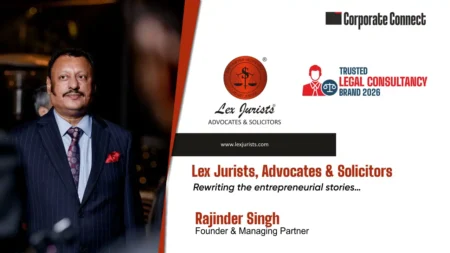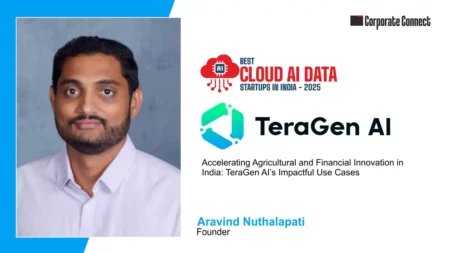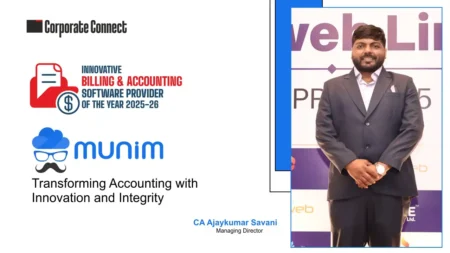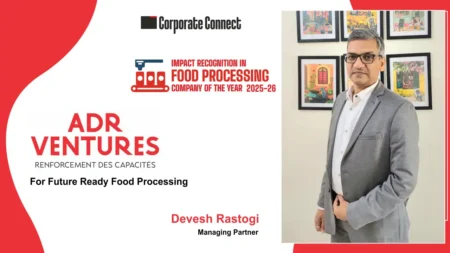A thought leadership non-academic, research online Institute striving for social impact
This time, we have highlighted a social-impact leader who drives innovation by applying entrepreneurial thinking to social issues. Be it responding to urgent global crises or empowering communities, such ventures pave the way for institutional changes. This new-age model of leadership is the need of the hour when the world is plagued by pressing issues like the global climatic crisis, terrorism, wars, etc.
Keeping all these unfortunate realities in mind, Phuro Innovations was established to offer an influential model for sustainable development, conflict resolution, and ecological balance. The leading face behind this conscious and thought-leadership platform is Rachana Sharma, a purpose-driven thought leader / social entrepreneur striving for global sustainability and world peace.
A journey worth many glances
Rachana Sharma, the Founder and President of Phuro Innovations, reflects on the inspiration behind her journey as a social impact leader. She explains that the foundation of her professional trajectory lies in Phuro Innovations, established in 2019, which introduced an indicator to measure Political and Ecological Peace. This was built upon her earlier work, the social peace campaign launched in 2015. However, the root of her inspiration stemmed from her personal peace indicator.
“My journey toward world peace began at the age of 15, when I was forced to leave my home. The place of my birth had transformed into a battleground plagued by vengeance, terrorism, and hatred. My only dream as a child was to live freely. Observing widespread psychological distress among the youth and witnessing the brutal killings of men, while women and children were manipulated into tools of fear, deeply affected me,”
she shared the unfortunate events. I simply fled. Even during her tenure as a top corporate leader in Southeast Asia, her inclination remained toward understanding the roots of global unrest. She yearned for meaning beyond corporate achievements and often expressed to her mentors that her life held a deeper purpose. Her enrollment in Harvard Business School in 2014-15 became a pivotal moment. During her time there, she consistently posed the same question to global leaders:
How does one discover one’s life’s purpose or the purpose of one’s nation? It was through the teachings of Authentic Leadership Development—self-reflection, leadership matrices, case studies, and spiritual guidance—that she found the clarity she sought. A conscious effort towards world peace via Ecological Peace The path Rachana took was untraveled, marked by both moments of recognition and profound solitude.
At times, she was celebrated in the media, and at others, she felt invisible and isolated. She compares this oscillation to an ECG—moments where she felt almost lifeless, only to rise again with renewed strength and divine purpose. Her journey, as she describes it, felt like rising from the ashes, measuring political and ecological peace & protecting the planet.
Owing to her corporate experience, executive education at Harvard, and continuous learning, Rachana now has access to a network of world leaders who support her mission. She actively utilizes various platforms to raise awareness about climate change and inspire collective action.
The pressing issues
She compares climate change to a ‘Natural Violence’—an emerging threat that, if not addressed at its roots, could devastate not just one region but the entire planet. “Having fled Jammu and Kashmir at 15, now at 45, I cannot flee Earth itself. Instead, I chose to confront the crisis so that future generations won’t have to make such choices,” she explained. Upon measuring personal peace within herself, Rachana set out to assess social peace through case studies and frameworks.
What she encountered, however, was widespread indifference—people are more willing to attend entertainment events than engage in discussions on peace. This realization underscored her belief that peace has never truly been given a chance in people’s hearts and minds. According to her, indifference is the first major challenge in South Asia, unlike the United States or the European Union, where citizen engagement around peace, stability, and prosperity is more evolved.
The second challenge is disorganization. She points out that India lacks even a single specialized R&D organization or an intergovernmental organization dedicated to peacebuilding. This void fosters mistrust and chaos. She stresses that the absence of war should be seen not as the end of conflict but as the beginning of an opportunity—a light in the darkness—to develop a culture of peace for future generations.
The third challenge she identifies is “interstice”—doing the same things repeatedly, failing to adopt new techniques to solve old problems. She believes fresh perspectives and a deeper understanding of geopolitics are essential for breaking this cycle.
A Message to World Governments and Citizens
Rachana sends a clear message to world governments, “Unless they address the core issues of indifference, disorganization, and interstice, they will remain unable to manage climate change. She warns that this failure will give rise to further violence under the guise of climate response, just as today, terrorism is often exploited by various actors for ulterior motives.”
To the global populace, her message is more specific: In my view, to save the planet from further destruction & rehabilitation, it is time for the world governments to demand the resignation of President Xi Jinping from the Chinese Communist Party. She supports this call with data, emphasizing that China alone contributes over 14 billion tons of CO₂ emissions annually—more than the combined emissions of 30 other nations, including the U.S., India, EU nations, and Russia.
She poses a compelling question to the people of the world: Is it easier to convince 30 nations to act or to hold one major polluter accountable in a collective, strategic manner? Purpose for Growth and the Next Five Years Rachana emphasizes that the Earth is humanity’s first mother, and Presidents like President Xi have severely harmed this life-sustaining environment. She calls for leaders who save rather than destroy the planet, and believes that it is imperative for the world to reject innovation that escalates CO₂ emissions.
For her, saving Earth and stabilizing its temperature is non- negotiable. She asserts that every effort counts and insists we cannot rely solely on COP30 or global summits. Instead, immediate, grassroots action is needed. As a defender of Natural Law, I am stating the Eternal Order. The Mantra mentioned in our ancient texts highlights this eternal order as “Na Ma Shi Va Ya , symbolizing Earth (Na), Water (Ma), Fire (Shi), Air (Va), and Space (Ya)—the five essential elements for life,” she conveyed.
In Exact order for life to survive, Earth comes first. Enclosed POSTER highlights the devastation we have created to these five elements as humanity. Starting from NOW, Global sustainability, in her view, requires that International policies should be aligned with this eternal order to ensure humanity’s survival and prosperity. Her vision for the next five years includes making a meaningful impact on global peace, particularly through ecological balance, driven by the divine fire within her.
The Role of R&D in Building World Peace
For Rachana, research is foundational. She believes world peace must be quantified through indicators such as social, political, and ecological peace. R&D helps define international relations, review political ideologies, and predict future scenarios. Much of her work involves in- depth research into geopolitics, regional histories, economies, and case studies. Based on this research, she develops white papers, frameworks, and philosophies to create a knowledge graph tailored to specific regions.
Daily Challenges and How She Copes
Rachana faces both external and internal challenges daily. Externally, the media is often dominated by climate change news, violence, terrorism, and war, which can create anxiety even in an age enriched by AI and social media. She encourages people to avoid forming random opinions on complex issues they don’t fully understand, suggesting this would help maintain societal balance.
Internally, she emphasizes the importance of silence, patience, and an impartial & fair view of current situations. Constant review of self-awareness & self-realization is key. Only by embodying these principles can they effectively model the peace they advocate. To her, a culture of peace is the external reflection of an evolved and refined internal value system.
Must Read:











